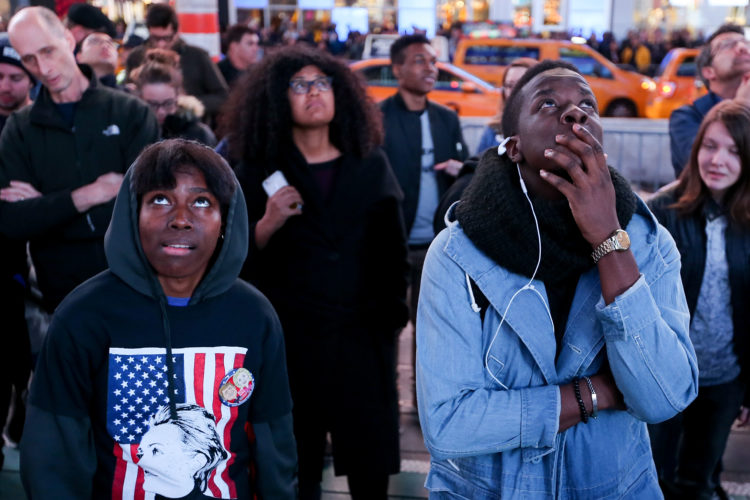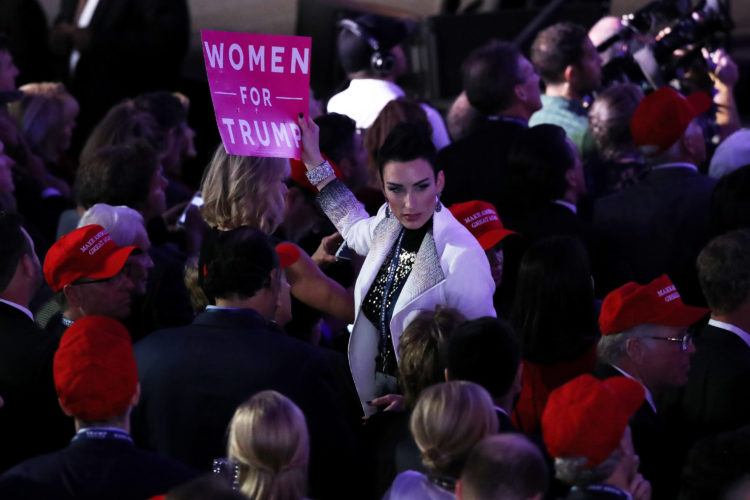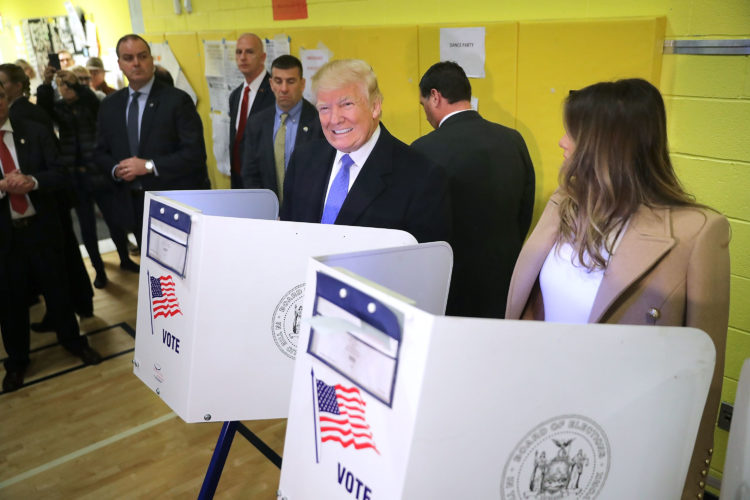This election is over. Thank God it’s over. When they called Florida for Trump, less than an hour after North Carolina was confirmed as a red state, it got really, really scary. Still, we thought it was going to be a nail-biter. We thought Hillary would find a way to get back in the game. At the eleventh hour. As she usually does. We’re used to it. With the Clintons, it’s always high drama. Every single time.
But this time was different. It wasn’t really a nail-biter. Not really. Because the writing was on the wall. From the start of the electoral night. America chose a misogynist. A xenophobic, racist clown for the highest office, for the biggest job in the world.
As a native Togolese who came to New York as a 27-year-old entrepreneur chasing the American dream, I cannot help but recall the hope. The hope that came with that classic transatlantic immigrant’s journey, which took me from visa to green card to citizenship in the Obama era. I imagine many (legal and illegal) African (and non-African) immigrants are waking up in fear today, because the prospect of smooth naturalisation may be starting to feel like a pipe dream.
Today’s hangover is forcing us to face and answer new questions.
After the early morning results came in, Instagram didn’t show me Ghanaian parties in the Bronx. I didn’t see any Togolese revelries in Omaha. No Ethiopians partying on the streets of DC.

All I saw was all kinds of very disappointed people all over the world. So many people stayed up all night, and all you could see on their faces was disappointment.
Still, today’s hangover is forcing us to face and answer new questions.
The main question for me, today, is how did we all get it so wrong? Week after week, I read the same polls and studied the same pundits as everyone else, projecting onto the winding path to 270 electoral votes. Yesterday, I even told my TRUE Africa team that the Clinton landslide would be a reality around 9pm New York time. It wasn’t until the dawn that I realised what had really, actually happened.
What did happen? It’s called tunnel vision. I saw proof of that tunnel vision on my own Facebook feed. I am a registered Democrat and a big Obama (and now Clinton) supporter. Every time I posted a pro-Clinton photo on my feed, the hundreds of likes reinforced the fact that most of my friends were walled off in a pro-Clinton fantasy world and wanted their pro-Clinton views validated by all their friends. Conversely, when I posted a link to the provocative TRUE Africa article Donald Trump is good for American democracy, most of my Facebook ‘friends’ either ignored the piece altogether or disagreed so much that the voice of dissent ended up drowning out British-Ghanaian MP Kwasi Kwarteng’s well-crafted arguments.
A vote against the Establishment. Against the metropolitan, cosmopolitan elites.
I voted for Clinton yesterday, just as I’d voted for Obama in 2012, but I do agree with Kwarteng’s assessment that ‘The Trump phenomenon is actually a sign that democracy is working. Here is a man who has never sought public office and has now shaken up an anaemic political system.’ In a sense–and this is what all the ‘experts’ are saying this morning – it’s just like the Brexit vote back in June. A vote against the Establishment. Against the metropolitan, cosmopolitan elites. ‘For too long,’ he wrote, ‘American politics appeared to be an insider game.’

And the news media, reinforced by the biases inherent in most social media, has been another key player in this insider game. As Pablo Boczkowski pointed out in the NeimanLab right before the election, ‘Hillary Clinton was endorsed by 229 dailies and 131 weeklies, including news organisations that historically have not been identified with either party and others clearly representing a conservative ideology normally linked to Republican candidates. By contrast, Trump received the endorsement of 9 dailies and 4 weeklies. That’s a 27-to-1 difference.’
Despite all that, Trump prevailed.
To be fair, I did see some signs of an upset when a Congolese American entrepreneur I have been mentoring said he was going to vote for Trump. He had read The Art of the Deal, Trump’s 1987 business-advice book, and felt that, as a budding businessman in his early twenties, he should align himself with a seasoned dealmaker like Trump. ‘Someone who knew how to win.’
And I did get worried when I spoke with his father, a friend, who told me that I should be a bit less biased when talking politics. That I shouldn’t be so influenced by the liberal news media. That, in reality, the Clintons were bad news for Africa. That I should be a bit more objective when assessing the various candidates’ strengths and weaknesses. What he was telling me, in essence, was that I, too, suffered from tunnel vision. I didn’t think I did. But with Trump’s strong showing, I realise that I am just as biased as everyone else who has a Facebook account.

